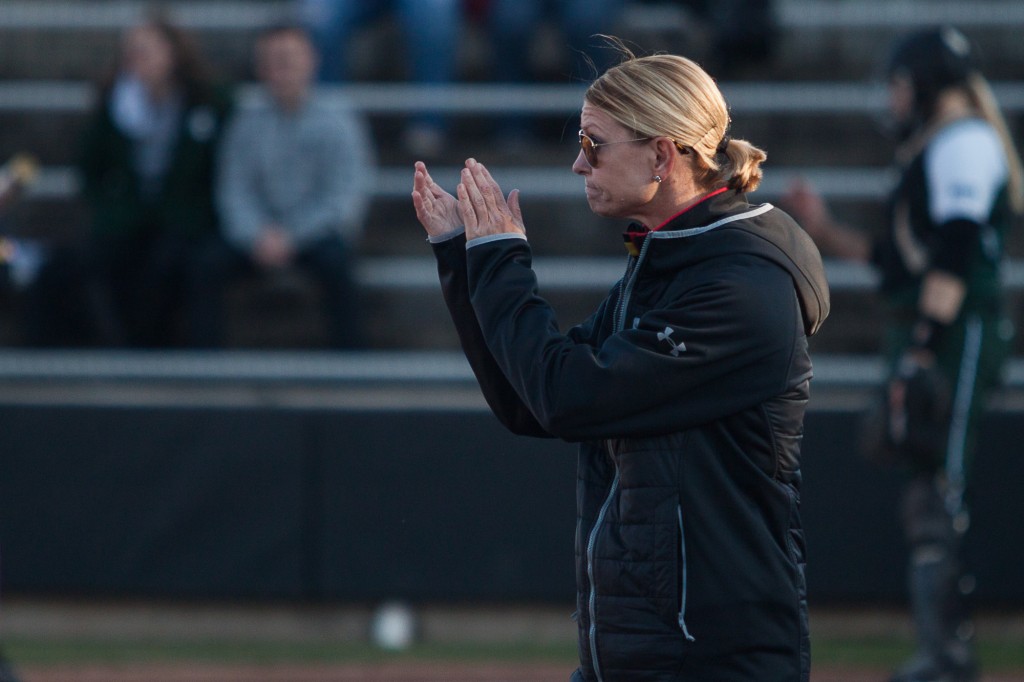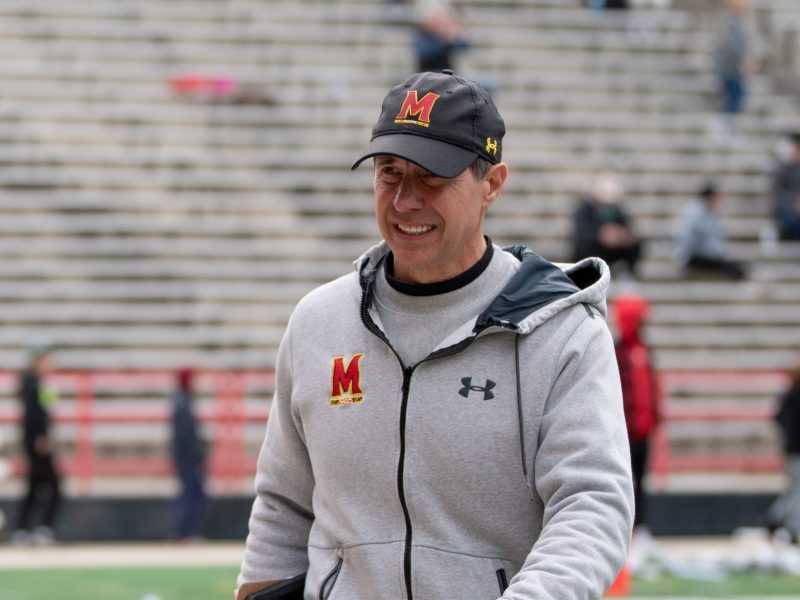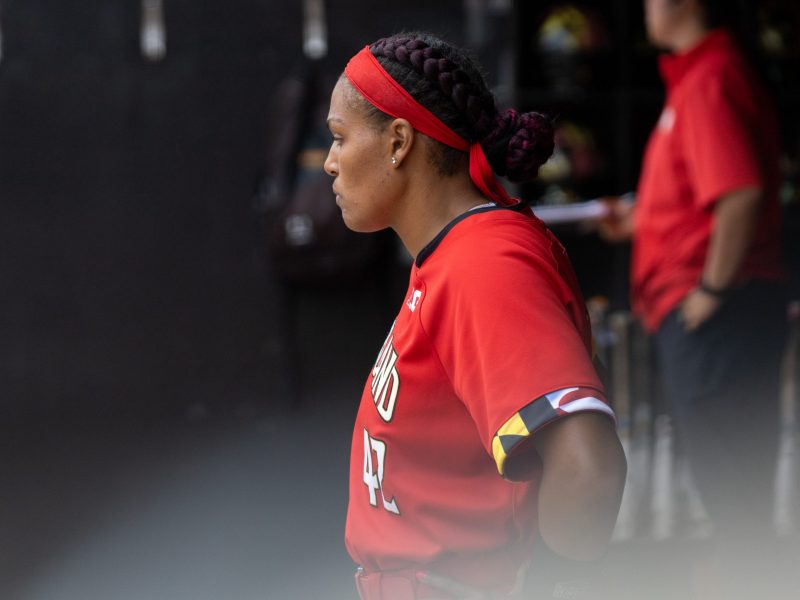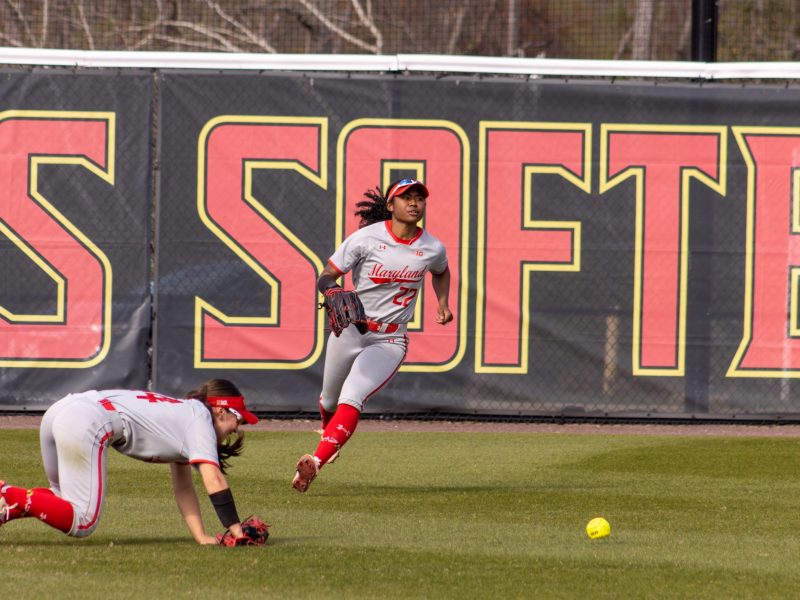Coach Julie Wright knew outfielder Amanda Brashear was “going to be fabulous” when she met the Chino, California, native at a travel softball tournament in San Diego. Brashear was a sophomore in high school, and Wright was impressed with her hand speed when swinging and her “game savvy.”
Wright was coaching at Idaho State at the time, and she secured Brashear’s verbal commitment to the Vandals after the tournament.
But when Wright accepted the Maryland softball job in July 2015, she let Brashear know “within minutes.” The first person she told was Brashear’s father, Sean, a travel ball coach. Wright was at the same tournament as him when she took the position, and she had a feeling she could swap Brashear’s commitment.
Brashear was in a limbo period of “not really wanting to go to Idaho State” during her junior year. During her official visit to Maryland as a senior, Wright sold her on the program.
Now a freshman at Maryland, Brashear has started every game and holds the team’s best batting average (.333).
Wright is “very high in intensity and demands a lot from you,” Brashear said, “and that’s what I looked for in a coach because I didn’t want a coach to just settle. I wanted a coach to push me to basically my breaking point.”
[Read more: Maryland softball gave up multiple late-game leads in the Missouri Tournament]
Brashear’s father was a coach of the Firecrackers, her travel ball team. Wright said having her father as a coach helped craft Brashear’s softball IQ, a skill Wright noticed when Brashear walked onto the field.
When a hitter is down two strikes in the count, corner outfielders move in since the hitter is less likely to swing for power. Wright said Brashear moves in before the coach can stand up to give the signal.
“She can think with me on a softball field,” Wright said. “When you have players who are already knowing what you’re going to put into play and they’re already prepared for it … that really, really helps.”
While Brashear said defense has been the easiest transition to college softball, she’s emerged as the Terps’ leadoff hitter. After the season-opening Texas Invitational, Wright expressed her desire to keep Brashear in the leadoff spot despite having more experience hitting second in high school.
She now has two doubles and two triples as part of her team-high 22 hits this season, helping her clinch the leadoff position.
“I like her demeanor when she goes up there. It sets a nice tone for us,” Wright said. “She has the potential to hit a ball into the gap and leg it out for a triple, and she has the potential to drop down a bunt.”
Infielder Anna Kufta attributes Brashear’s leadoff success to her ability to read the defense and her aggressiveness as a slap hitter. Wright noticed those skills when she first watched Brashear play three years ago.
“Put the ball in play and make the defense make plays, which she does very well,” Kufta said. “Also, it’s a mentality of ‘You’re not going to beat me with the same pitch twice,’ and that’s something she portrays every time she’s up to bat.”



